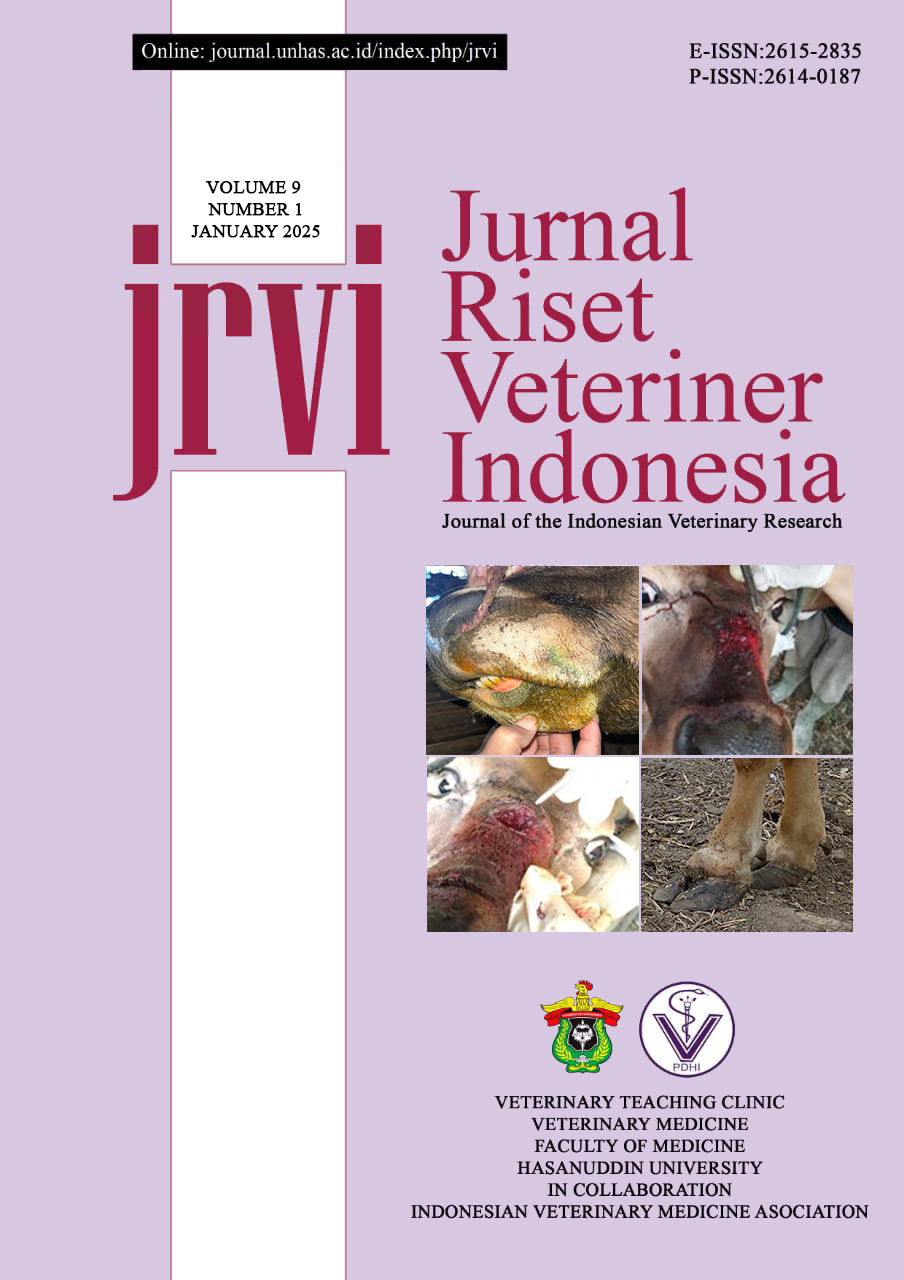Abstract
Extremely high reproducibility in cats can be a problem due to the limited ability of humans to adequately care for cats. Overpopulation of cats in an area leads to animal and environmental health problems. In veterinary practice, surgical sterilization is the most recommended treatment to overcome the problem of overpopulation. However, many Moslem communities who are doubt this treatment because of Islamic law. This study aims to determine Moslem community opinion on orchiectomy and ovariohysterectomy surgery as an effort to control the cat population. The research was conducted through an online survey of 83 Moslem cat owners. The statement that the sterilization treatment for cats was not in accordance with Islamic law was approved by 12.30% of respondents and strongly agreed by 7.40% of respondents. Around 30.50% of respondents have neutral opinion, 31.50% of respondents agreed and 18.30% strongly agreed. Cat sterilization with certain medical reasons was not approved by 2.40% of respondents and strongly disapproved by 1.20% of respondents. Neutral opinion was given by 9.60% of respondents, 61.40% of respondents agreed and 27.70% strongly agreed. Respondents agreed that cat sterilization is against the nature of cats as creatures of Allah (23.10%) and strongly agreed (6.00%). Around 25.50% have a neutral opinion and 32.10% disagree and 13.30% strongly disagree. The obligation of humans to care about animal health problems is agreed by 53.24% of respondents and 42.20% strongly agree. Neutral opinion is 2.40% and disagree is 2.40%. A total of 36.30% of respondents agreed even though the Prophet's cat was not sterilized and 14.50% strongly agreed. Around 27.50% are neutral, 16.90% disagree and 4.80% strongly disagree. It was concluded that most of the Moslem community who keep cats have no problem with orchiectomy and ovariohysterectomy surgery to reduce cat overpopulation, some do not know and some do not agree.
Keywords: Representation, cat, Moslem, owners, orchiectomy, ovariohysterectomy

This work is licensed under a Creative Commons Attribution-NonCommercial 4.0 International License.

